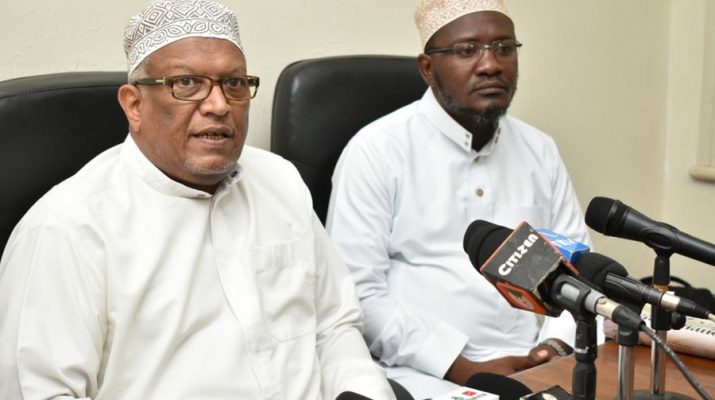Muslims in Kenya and other parts of East Africa will begin fasting tomorrow Wednesday after moon observers failed to sight the new crescent moon yesterday evening in East Africa, Chief Kadhi Sheikh Ahmed Muhdhar has confirmed. Although other Muslim faithfuls who follow Saudi Arabia crescent moon will begin their fasting today after yesterday’s announcement, the sighting of the moon was confirmed by a team of astronomy observers in Saudi Arabia’s Hautat Sudair, a small village located at an intersection between Riyadh, Sudair and Qassim, 140 km north of the capital Riyadh.
Muslims follow a lunar calendar consisting of 12 months in a year of 354 or 355 days. Sighting a crescent moon heralds the start of Ramadan, the ninth month of the Islamic calendar. Ramadan is the ninth month in the Islamic calendar and it is time when Muslims around the globe focus on prayer, fasting, giving charity and religious devotion. It is the month wherein Allah sent Archangel Jibril (Gabriel) to Prophet Mohammed with the first verses of the Quran (Koran) and therefore considered the holiest month in the Islamic calendar.
Addressing media yesterday evening in his Mombasa office, Sheikh Ahmed Muhdhar said after failing to sight the crescent moon in East Africa, today Tuesday 13th April in Islamic calendar it will be 30th Shaban 1442 .
Shaban falls between the sacred month of Rajab and the fasting month of Ramadan which marks the commencement of God’s revelation of the Quran, the last of the divine dispensations and the Heavenly Scripture of Muslims. Ramadan also hosted the earthly entry of all the preceding Heavenly Books from God to their messengers, including the scripture of Abraham, the Torah (Tawrah) of Moses, the Psalms of David (Zabur) and the Evangel (Injil) of Jesus, on them be peace. Shaban marks the month in which God first enjoined Muslims to fast the entire month of Ramadan (the Fourth Rite of Islam’s Five Pillars) as a community. This happened in the second Hijri year.
Sheikh Muhdhar wished Muslim community a blessed sawm (fasting) during the month of Ramadan and urged Muslims to observe a strict fast between dawn and dusk and participate in pious activities such as Koran recitation, prayers and charitable giving. He urged the able Muslim community and charitable institutions to assist the needy Muslims in the month of Ramadan. The religious leader cum judicial officer said Ramadan is a time for renewing faith and purifying ‘heart and soul’ for the millions who share in the Muslim faith around the world.
Just like last year when the fasting month came late April shortly after the pandemic struck the country, Ramadan will this year coincide with the third wave of the disease which has taken a heavy toll, where Sheikh Muhdhar has urged Muslims to abide by the set health regulations such as personal hygiene, hand washing, wearing face masks and social distancing to curb further spread of the virus.
The holy month of Ramadan is marked by social and religious gatherings where Muslim families and friends unite to break their fast together after sunset during iftar or before dawn during suhour. Many Muslims increase their attendance at mosques during the month and congregate for longer prayers for taraweeh and qiyam. Some Muslims also spend consecutive days and nights at mosques during the last 10 days of Ramadan (i’tikaf) for prayers. These traditional and religious practices are regularly observed throughout the month but will be curtailed because of Covid-19 restrictions and enforcement of curfew hours.
Ramadan requires every mentally and physically fit Muslim, who is past the age of puberty to fast from dawn till dusk during the month. Fasting is compulsory upon every Muslim male or female but exemptions include children under the age of puberty, insane people and men and women who are too old to undertake the obligation of fast. Others include sick people whose health is likely to be severely affected by the observance of fast, pregnant women and women breast-feeding their children and women in the period of menstruation.

